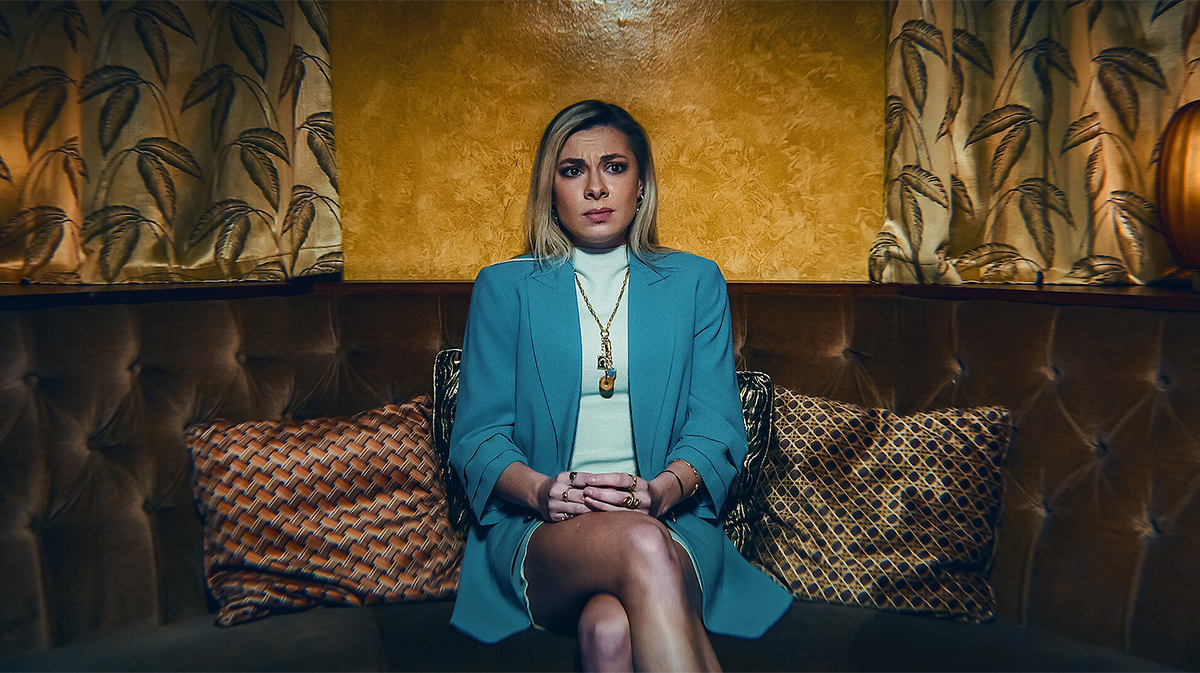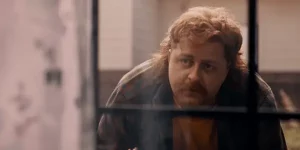
Warning: contains spoilers for all three episodes.
The definition of stalking in the UK is repeated behaviour that makes a person feel scared, distressed or threatened and only needs to happen two or more times to qualify. Despite those seemingly straightforward parameters, the charge, prosecution and conviction rates for stalking in the UK are still alarmingly low. It is even harder to achieve justice when it comes to the crime of cyber stalking.
Can I Tell You A Secret? has just dropped on Netflix, and details the prolonged and prolific cyber stalking and harassment of several women for over a decade by Matthew Hardy. The documentary focuses primarily on three of Hardy’s last victims; women he picked at random who had no connection to him at all. Abby, Lia and Zoe talk about how Hardy first interacted with them on social media posing as another woman so that their guards would be down. The first messages seemed innocent enough, but soon escalated into lies, threats and intimidation. Despite all three women being unsettled by the mysterious messages, none of them called the police initially. All of them seemed to instinctively know that without gathering proof themselves, there was little chance of the police taking them seriously.
Zoe, a model and avid traveller, went through Instagram Likes with painstaking detail to find the account that was messaging people she knew with a campaign of harassment. When she finally went to the police, they told her that since there had been no rape and no murder, there was nothing they could do. Zoe realised “[They’re] not going to do anything until something like that happens.”
Abby, a fire breather and performer, lost her relationship and changed the way she lives as a result of the constant barrage of messages and feeling of being watched. She started living a reclusive life, even though “[she] used to go out and not be sacred at all.”
Lia, a family-oriented social butterfly, has the help of parents and friends, picking her up, dropping her off, making sure she is never alone; but with the stalking still ongoing, nothing made her feel safe. When she eventually went to the police, they told her they couldn’t do anything because “nothing had happened to [her].”
“Nothing Had Happened”
It seems unfathomable that someone can come to the police with such a large volume of messages and screenshots of what has been sent to them, to their friends and to members of their family, and have the police say that nothing can be done. The authorities have access to phone tapping, criminal records and location information, but without the motivation of a more serious crime, are reluctant to use these resources.
In the documentary, Abby recalled one occasion where she contacted the police asking for an officer to come and see her, and was told that someone would be with her in 20 minutes. Instead, after an hour, she received a phone call telling her they didn’t believe she was in immediate danger and perhaps it was best they didn’t come. Abby felt embarrassed by their tone which implied she was being ‘silly’ and agreed. After that, the police didn’t follow up, investigate, or check on Abby again.
It’s no secret that certain crimes seem to need a more substantial collection of physical evidence to be prosecuted; it is also no secret that these crimes are often ones that mostly target women. It is not uncommon for abuse, violence, rape and murder to begin with stalking and harassment, but as Zoe was told, until one of those things happens, there is very little the police are willing to do. When you add the ever-expanding capabilities of the internet and social media, where people can hide their location, remain faceless and emotionally abuse from a distance, a police force and justice system that is far behind the advancement of technology is even less motivated to start the hard work of pin pointing a perpetrator.
For the victim, that means weeks, months and in the case of Hardy’s harassment, years, of waiting for the worst to happen. It means the inability to live a normal life or trust those around you. Some of the victims even started sleeping with weapons nearby, just in case. When someone seems to know the intimate details of where you work, who your family members are, what you’re wearing, how you speak etc… it’s hard not to look at everyone with suspicion.
Matthew Hardy’s Cyber-Stalking History
Hardy’s unsettling behaviour started when he was just a teenager and would use Facebook to message and torment his female schoolmates. They quickly figured out it was their strange, loner classmate sending the messages, but even though Hardy was identified immediately, it didn’t stop him from disrupting the girls’ lives by messaging their families and employers. 14 years later, when Hardy started stalking Lia, Abby and Zoe, he seemed just as unperturbed by being identified.
Zoe and Abby kept digging through messages and profiles until they came to the name Matthew Hardy. They Googled him and found a Northwich Guardian article about his prior conviction for cyber stalking and Facebook hacking. Lia, who at the time was working for a solicitor, built an evidence folder in the same way she would create a court bundle. Sabrina, a friend of Hardy’s aunt and one of his earlier victims, started calling Hardy when she figured out it was him. She got him talking and recorded the conversations. A friend of hers also captured the moment Hardy slipped up and accidently posted a recording of his face on Instagram Stories from one of the fake accounts he used to terrorise women. But even with mounting evidence, a previous conviction and restraining order, and being questioned by the police, Hardy wasn’t deterred, in fact he seemed spurred on.
For Abby, Lia and Zoe, their turmoil looked to be indefinite, until they finally got an unexpected call from PC Kevin Anderson, the first officer they came into contact with who took these crimes seriously, something that could be argued should be the bare minimum. Although PC Anderson does exemplary work and was determined to help these women, even he admits that without their screenshots, recordings and documented evidence, he would have never been able to push for an arrest and certainly could not have expected a conviction. These women essentially investigated their own cases and ensured their own justice.
They Did Everything Right
While it’s hard not to be impressed with the strength and resourcefulness of these women, there’s also the frustration of knowing that they should not have had to do it themselves. It is impossible to deny that dealing with the sheer size of the Internet and what it means for crimes like this is daunting, but as these crimes are on the rise and the safety of people, especially women, are more at risk, it follows that there should be a more concerted effort by the police and our justice systems to be and remain up to date.
The events detailed in Can I Tell You A Secret? are not necessarily unique. The messages Hardy sent weren’t more salacious or violent than ones that have been sent before or since. Luckily, it seems that he had no interest in hurting the women, and beyond making their lives miserable from afar, he apparently had no interest in physically attacking them or making his presence known in a more tangible way. Not every victim of stalking is as lucky.
What sets Hardy apart is the amount of detail, time and effort that went into these extremely well-co-ordinated campaigns. There were so many messages that at times his victims thought it had to be more than one person, possibly even a team of people. Because of this, and most likely because of Hardy’s earlier blanket denials of his crimes before eventually confessing and pleading guilty, he was handed the longest sentence that has ever been given for cyberstalking. It is an all-too-rare example of victims being able to feel the relief of justice and rebuild their sense of safety and personhood.
Abby, Lia and Zoe have relationships that were broken by what Hardy did that can never be repaired. Even though they did everything they were supposed to do, documented, reported, talked to family, friends… The way they carry themselves and respond to certain things have been forever changed. They faced Hardy in court, they told their stories to The Guardian and now they have shared them with an even wider audience. Hopefully their example will help women who find themselves in similar circumstances, but a greater hope is that the police will take this as a call to action so that fewer women find themselves in these circumstances at all, let alone for several years.
Can I Tell You a Secret is streaming now on Netflix.
The post Netflix’s Terrifying Cyberstalking Doc Highlights a Baffling Reality appeared first on Den of Geek.










